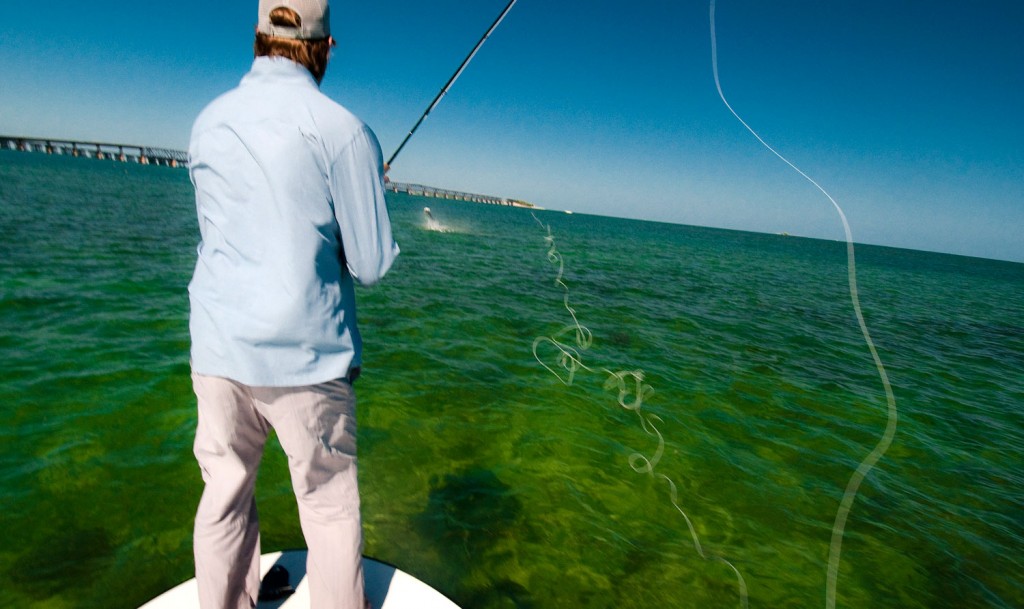It’s such a simple thing to check your fly.
It’s 6:45 in the back country of the Florida keys. It’s mid summer and the water is like glass. I can feel the sweat running down my neck and legs. I’m trying to be as quiet as possible as I frantically strip line off of my reel. My buddy Joel Dickey has cut the motor and is on the platform before the prop stops turning. As our wake bends the clouds reflected in the water, we coast silently toward a school of rolling tarpon.
The set up is perfect. I feel a little breeze pick up. It feels wonderful on the sweat soaked back of my shirt. The breeze, the light and the tide are all coming from behind me. Joel puts me in position. A fish rolls at eleven o’clock fifty feet ahead. I drop the fly just in front of him and strip once, twice and the line comes tight.
I strip set hard with my left hand, then lock the line against the grip and stick him again with my right. The light off of the scales is almost blinding when the fish comes up for its first jump. A brief flash and it’s over. A familiar feeling. Tarpon are hard to hook, the juveniles more so.
“Check that hook” Joel tells me. I strip in my fly and test the point, first against my finger nail, and then against my skin. Dull. I vaguely remember the fly hitting the push pole on one of Kent’s casts.
“Fuck me running!” I look at Joel on the platform.
“That was your fish … give me that fly, I’ll change it.”
It’s such a simple thing to check your fly. It takes less than a second to touch the point of that hook. After driving fourteen hours in the car and another thirty minutes in the boat to be fifty feet from rolling tarpon, and not take half a second to check my hook.
No matter how long you’ve been fishing, rookie mistakes still cost you fish. You have to be a little OCD. You have to have a ritual. You have to respect the power of the details every time you pick up the rod. Check your fly, run your leader between your fingers to feel for nicks, test your knots, check your line on the deck. I don’t know if God is in the details, but I’m sure the fish are.
Louis Cahill
Gink & Gasoline www.ginkandgasoline.com hookups@ginkandgasoline.com Sign Up For Our Weekly Newsletter!

I carry a hook sharper . . . and check my leader every thirty minutes – and change my leader after five fish
True for all fly fishing. Saltwater hooks can become dull and tippet or leader can be damaged on any part of the boat or oyster beds or the like, but small freshwater hooks are also susceptible to damage and straightening and fragile leader or tippet with knots or nicks cause loss of fish all the time. This is a correctible error. Attention to detail is primary to success.